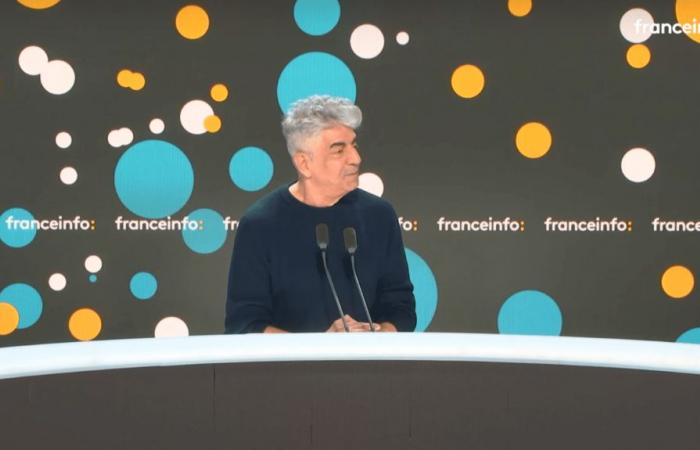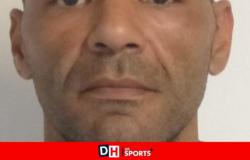Didier Varrod is the director of Music for Radio France. Long collaborator of Jean-Louis Foulquier for the show “Pollen, les amis d’abord…” on France Inter and for the Francofolies festival in La Rochelle in the programming box. Sometimes at the microphone, sometimes at the programming, his main pleasure is to ferret out and support artists, whether confirmed or in the making. In 2020, to deal with the pandemic and to support artists, he created the artist collective #Etonremetleson with a large Hypernuit organized in full curfew, i.e. six hours of music broadcast on five of Radio-France’s antennas. Since 2022, he has been at the origin of the Hyper Weekend Festival, Radio France’s first current music festival dedicated to creation and the young French scene.
franceinfo: You wanted this festival to reflect your image a bit. The idea is to get out of your comfort zone.
Didier Varrod : So yes, because I have always liked to get out of my comfort zone. I have always liked to be destabilized, unbalanced by musical aesthetics with which I do not have an affinity. There is no good or bad music, I always work on the parameter which is that of emotion, but also, I sometimes try to put myself in the place of the listeners or spectators and spectators. spectators who are confronted with a project by telling me that even if it is not my culture, even if it is not my music, this project, on the other hand, I think that it can interest a large number of people.
I was wondering what the soundtrack was at home.
The soundtrack at home was a dad who listened, on Saturdays and Sundays when he wasn’t working, to Georges Brassens and Charles Trenet. Mom had a culture, and one she still maintains, that was much more popular. His favorite singer in the 60s was Adamo. Then, she fell into an immoderate, passionate love for Joe Dassin and Julio Iglesias. You imagine that the spectrum was very broad. And then two brothers who really fight in the most absolute cliché. One is Rolling Stones and the other is Beatles. I navigated between all these cultures, but I created my own culture with my radio, my transistor radio. There is a form of pathology for me in my relationship with the radio since around four or five years old, I was already falling asleep with the radio on and my mother had to take it away from me to be able to be sure that I was going to do almost normal nights.
The first emotions remain the Mathieu family who did not live very far from you and there is Françoise Hardy with All the boys and girls. At that moment, you understand that you have a different sensitivity, on edge. You were also born in a very complicated time when homosexuality was penalized. Did you know you were different?
Yes, I think I was different. It’s funny that you talk about Françoise Hardy, All the boys and girlsbecause I was listening to this song which was totally melancholic.
“I felt, intuitively, without knowing why, that I would indeed have a difference to accept and confront.”
-Didier Varrodat franceinfo
In the program, there is Jorja Smith with the Orchester Philharmonique de Radio-France. Chilly Gonzales with a Rap bedroom and then, a duo of brothers, Terrenoire. They were really supported from the start by great artists like Bernard Lavilliers. The Hyper Weekend Festival, since we are talking about Bernard Lavilliers, is talking about golden hands, but also golden voices and that it is important to tell the story of real life, that of everyone.
Music, like sport, are the two disciplines that allow us to recreate links. You go to a concert hall, there are men, women, different generations, different sexualities, people who vote on the extreme right and others on the extreme left. But for an hour and a half, all these people are able to be together at the same time, in a peaceful, joyful and social way.
“I am determined to say that music must really be considered much more seriously by our political authorities, because it is a way of stitching together this France which is torn apart.”
Didier Varrodat franceinfo
Is the house of radio and music, public service, your life?
Yes, I have it in my body. I don’t know why, but I think that in public service missions, there is diversity, parity, highlighting the French-speaking world, values which are essential for me. Where does it come from? So, I don’t know, maybe we need to give back to the parents what belongs to them. My parents were and remain listeners of Radio France.






